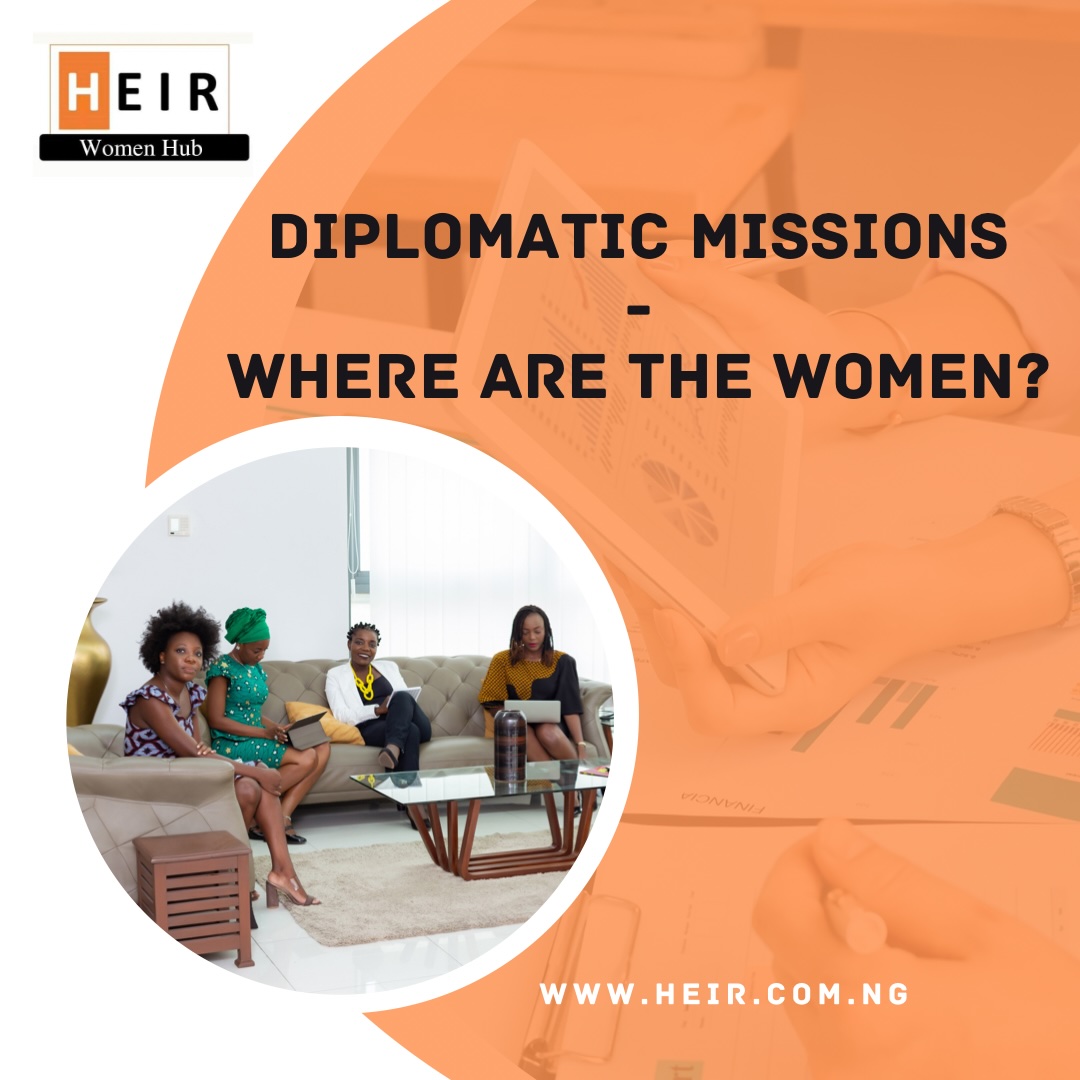
Nigeria as a county is signatory to conventions and treaties that seek to promote the development of her people and Nation. The UN assembly inaugurates instruments as the body of power and authority over matters around peace, security, human rights and of course, women. Instruments are developed and documented and member states are ‘supported’ to align to these instruments however, I am yet to see where countries such as Nigeria, is held accountable for non-conformity.
With the UN inaugurated -June 24 Women in Diplomacy Day and a theme to visibilize leadership to include women, it is critical to understand the issues contextually and localise the approach to inclusive governance.
Insecurity has been on the agenda for Nations like Nigeria. Past and present governments have a reoccurring agenda item on tackling insecurity issues and recently, a joint security summit over 2 days, was held in Nigeria titled the North West Peace and Security Summit- with a focus on strategic planning to bring insecurity to a halt in our Nation. Also on the panel, special guests, Governors, traditional rulers, (mostly men), speaking to the issues and suggesting solutions- some of these solutions interestingly, include intentionality in having women in peace and security. History records that in security and peace interventions, women have been on board to discuss issues and arrive at implementatble solutions. The current Secretary General of UN is a woman from Nigeria, the DG of WTO is a woman from Nigeria. Yet, Nigeria has yet to mirror the intelligence and effectiveness of appointing women into leadership.
Diplomatic missions are positions held by ambassadors who then are on ‘missions’ to designated countries in order to ‘represent’ and ‘foster’ relations in assigned countries and jurisdictions. The Women in Diplomacy Index 2022 shows gender imbalance in representation in 40 countries within largest economies in the world and the EU. This data shows that Nigeria, with a total number of mission pegged at 77, has 15 women as ambassadors. Nigeria currently isn’t in the G7 or G20 States. Women from other countries represent their Nations and are included in the G7 and G20 States. It is also worthy to note that Nigeria did not fully appoint ambassadors in the countries she has diplomatic ties in meaning that those seats are vacant as at the time of this report. In the 2023 report, Anwar Gargash Diplomatic Academy (AGDA) Index shows that “women remain underrepresented in ambassadorship positions across the world, as only 20.54% of all ambassadors are women. The data also shows that Canada takes the lead in having appointed the highest share of women ambassadors and permanent representatives, with 51% of its ambassadorial posts being held by women. Andorra, the Maldives, and Monaco’s share of women ambassadors stands at a close 50%, while Finland, Ghana, Nicaragua, Sweden, the Bahamas, the United Kingdom, New Zealand, and the United States (US) all have percentage shares of women ambassadors ranging between 41% (for the US) and 49.5% (for Finland)”.
Where are the women? Nigeria has recorded many women in positions of authority across industry and organisations and still record gender imbalance in security and peace keeping. The importance of Women in Diplomacy Day is to raise the issues that women are still under-represented and to raise a deeper root cause such as social and masculine norms, entrenched in institutions and systems that still sideline women.
The UNDP hosted security summit meeting in Katsina State, Nigeria, has shown and proven that women are not represented by the leadership posturing of the guest and speakers at this summit. Women’s voices are being silenced and unrecognised in peace and security. The real time gaps prove that in women leadership, either through elective or appointive positions, Nigeria requires an inclusive strategic thinking to rightfully intervene in women representation across systems and structures of decision making. Rhetorics can do so much as emphasise conditions of oppression however when conversations keep being rhetorical, it has a high chance of desensitisation. That should not be the option.
While I strongly advocate for women in positions of leadership, I suggest that the tackling of issues that still limit women- social norms that have been institutionalised, unconditional bias, GBV, harassment and marginalisation- be prioritised, discussed thoroughly with an implementable solution that is contextualised and localised.
Women on diplomatic missions are very important positions to fill. Nigerian Government needs to take a determined inclusive approach to intervening and ensuring peace and security in our Nation. Nigeria can better achieve this when we include women.
Añuli Aniebo
